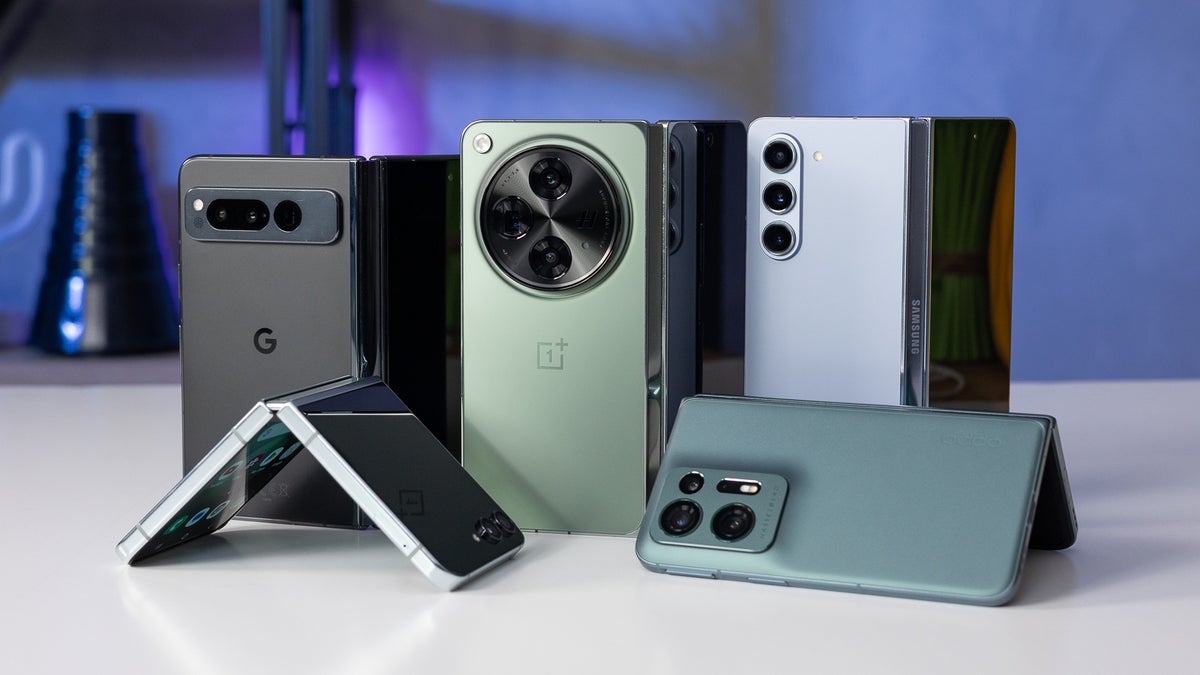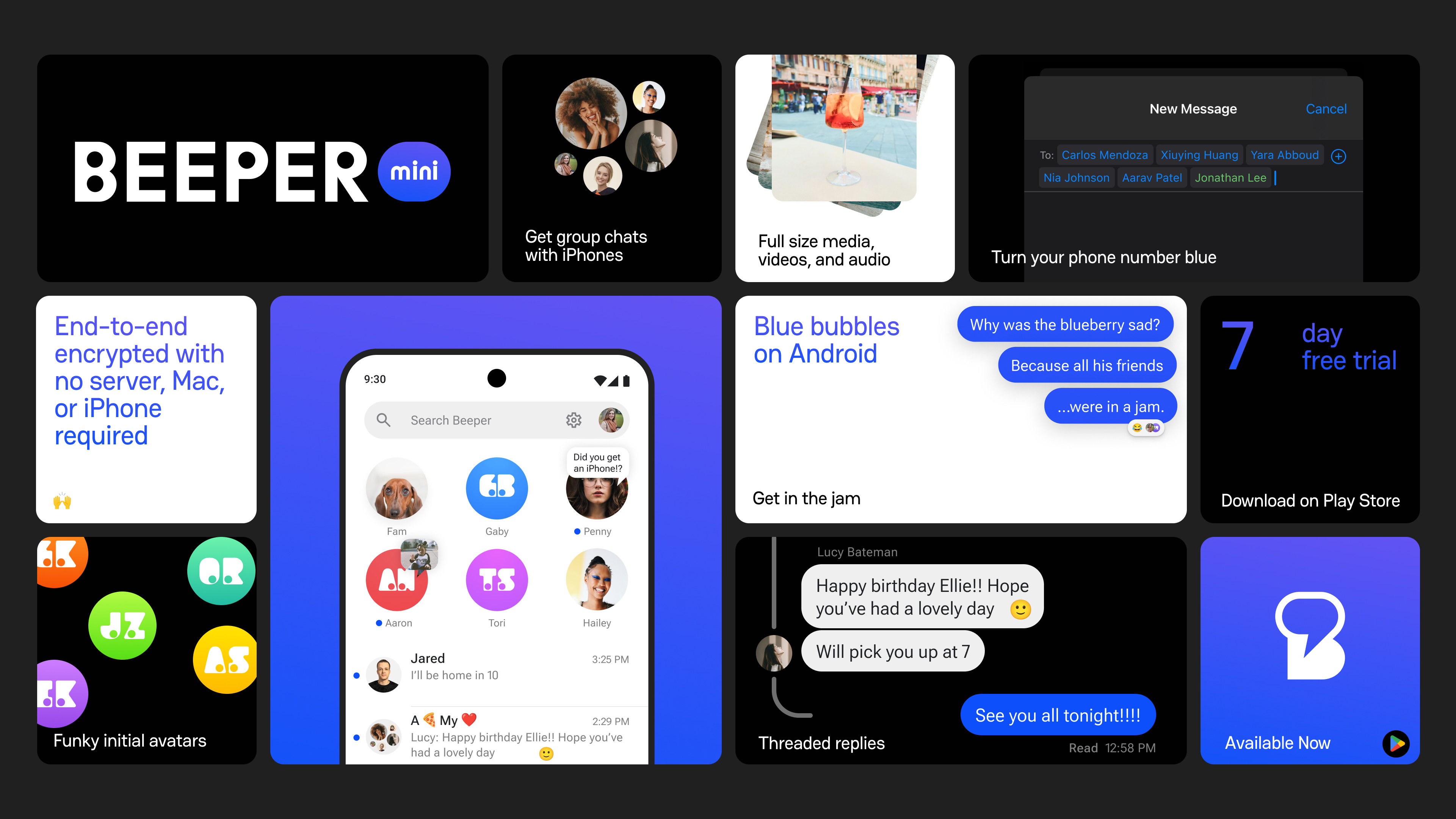- Homepage
- Best of 2023
- Biggest tech winners (& losers) of 2023
Biggest tech winners (& losers) of 2023
Time to see who got 2023 in the bag and who lost it….

2023 has been one of the most tumultuous years in tech. While some of the things we thought would be all the rage right now e.g. Foldables, didn’t quite take of the way we thought they would, others completely came in and changed a few things we didn’t expect. Safe to say, 2023 had its fair share of winners. But it had losers too. And trying to see who falls on which side is always an interesting exercise for us, so allow us to do so, with our biggest tech winners and losers of 2023!
AI

Let’s start with the obvious one. AI has completely dominated everything in tech this year. From ChatGPT and bard taking over your school and work assignments to Microsoft’s millions of Copilots to film studios putting people out of the job because of AI and everyone agreeing that any image that they don’t trust should be deemed as “done by AI”. We’ve all gone from thinking AI is the bad guy from Terminator to basically taking it in as part of our daily lives, albeit with a bunch of asterisks. AI has changed technology, changed some of our biggest corporations and industries, and continues to infiltrate huge parts of human living and culture. Now we just need to figure how to get a hold on it.
Remittance services

InnBucks, Ecocash USD, Mukuru, Access Forex, the list kept growing this year. USD remittance services have been on a role since last year honestly, but this year they reached a whole new league of accessibility. After InnBucks showed what it can do last year, everyone decided to up their game. Ecocash USD is the biggest example of this, but players like Access Forex deserve a notable mention for scaling up services as well. This is alongside all the typical bank backed services like BancABC’s CityHopper as well staying in the game through being available in your typical grocery stores. The pandemic and 2022 taught everyone you need to give people easy access to your services to get their money. And remittance services learnt that too. Which makes them an easy winner of this year financially and performance wise.
Gaming handhelds
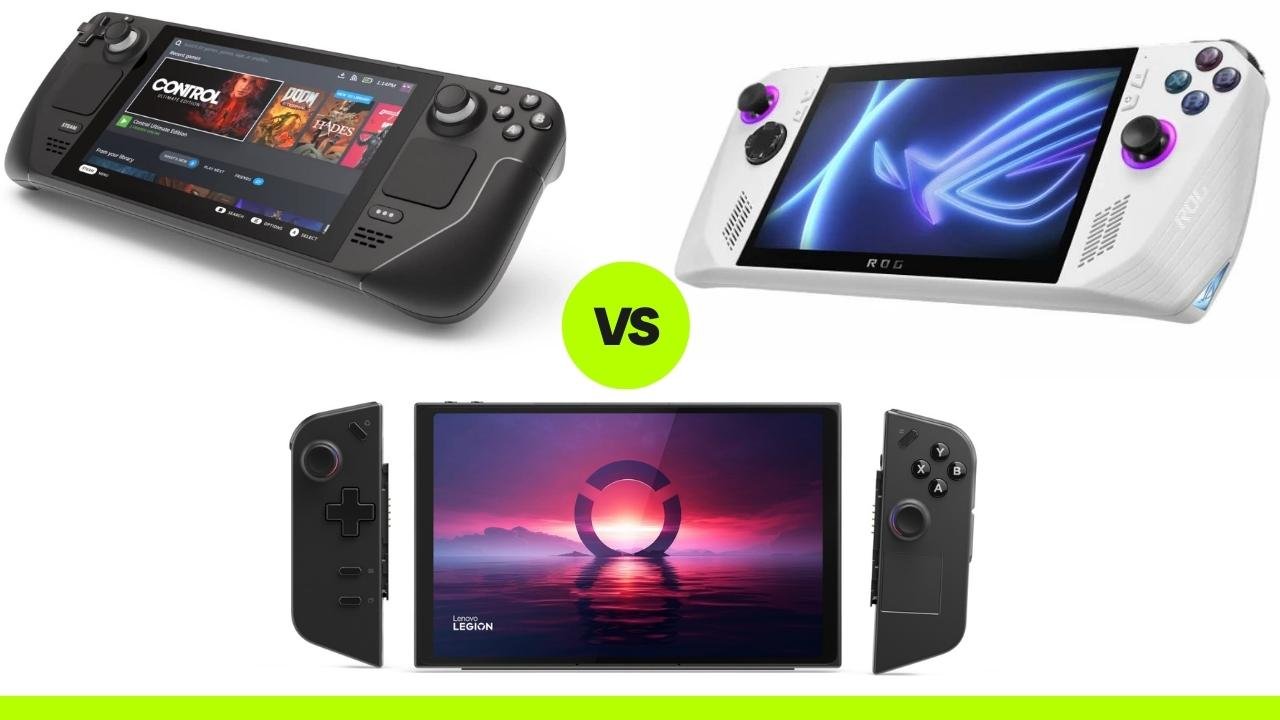
The dream of bringing a full game console’s power into the palm of one’s hands has always been a dream gaming companies have chased for a while. The PS Vita was right at parity with the PS3 but a little late because the PS4 was right around the corner. The Nintendo Wii U was the ultimate was Nintendo’s half measure towards creating the Switch, but neither have captured what we would call high-end console power. And while there were some worthwhile attempts from the likes of GPD and Aya Neo, last year’s Steam Deck finally created the powerful, modern gaming handheld we always wanted, being able to play games PC games of the PS4 and PS5 generation easily in a compact and reliable package that was easy enough for almost anyone to use. And 2023 has basically been the year of the Steam Deck’s competitors, with awesome entries from ASUS and Lenovo in the ROG Ally and the Legion Go. Both which have offered their own unique takes on the formula, with the Ally being a more direct competitor to the Deck while the Legion Go adds a bigger screen, better cooling and detachable controllers like the switch that are optimized for first person shooters. And Valve have upgraded the Steam Deck too, giving it a better OLED screen and a processor bump. It’s a whole Renaissance for powerful mobile gaming. And both fans and corporations want in on it. Right down to Apple even trying to push the iPhone as a portable gaming machine. That maybe a little more of a marketing stunt, but still, handheld gaming is back. And we should all probably get in on the fun.
Foldables
For a while there, it kind of honestly seemed foldables were kind of…not going to work. I mean don’t get us wrong the technology did keep improving bit by bit over these past 2 years. But when it came to people adopting these devices or foldables basically reviving the smartphone market, the goings were pretty slow, be that because of customers not being sure about their durability, the crazy high prices of the devices, or of course, the lack of variety. Thankfully this year has seen some positive movement on at least 2 of those things , making a huge jump in foldable adoption around the world and increased competition especially in western countries. In a world where Samsung used to rule, Google , Motorola and OnePlus have increased the pressure in ways that has made Samsung improve their act especially with phones like the Z-Flip 5. The OnePlus Open has also proven that big foldables can be brought down to as low as $1000 in price, while Tecno has launched a foldable for $1000 while their flip phone goes for a low as $600, a price only matched by Motorola’s 2023 basic RAZR. Simply put, all these devices being cheaper and more competitive has outright made the foldables space much more interesting, varied, and most importantly, cheaper and vibrant. And what more might one want beyond that? Foldables have finally gotten the big win they need most this year.
The European Union(EU)
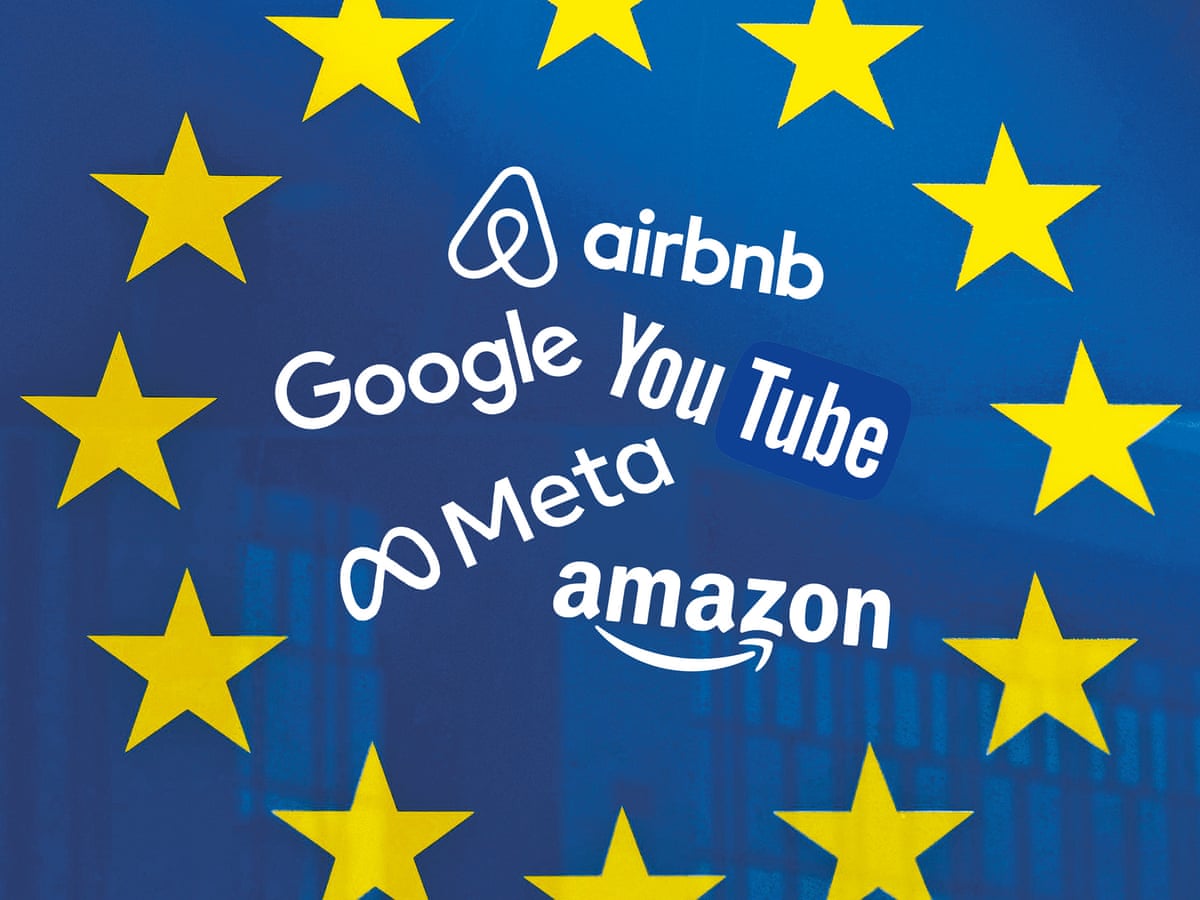
You want to know who caused the iPhone 15 to have USB-C ports? Caused Windows devices to allow you to uninstall Microsoft Edge? Might make iMessage blue bubbles a thing of the past and is already causing tech companies to be much more responsible about aspects such as carbon emissions and reliable manufacturing standards? The European Union of all people. In a world where tech companies have been running rampant to the point where they create worse products (who was still benefitting from slow charging lightning ports or insecure iMessages?), the EU has basically started reigning them in and forcing them to make products that are better for consumers. It’s measures may take some time ( the bill to make Apple USB-C would actually take 2 years to come into effect) but they’re slowly making the tech we use more applicable to our actual needs, and there’s no version of life where that’s a bad thing.
Threads

Now this one is going to be a bit controversial for most because for a lot of people, Threads has proven to not be worth it. People wanted a quick Twitter replacement especially when Elon went a little overboard this year, and Meta made sure to launch Threads at that exact moment, gaining up to 100 million users in the space of 10 days. However Threads wasn’t exactly the Twitter replacement people we were looking for. It was definitely more moderated, less raunchy , and ironically, less focused on the news. However while Threads wasn’t the Twitter replacement most wanted it to be, it’s still the most successful Twitter alternative on earth, achieving what the likes of BlueSky and Mastodon failed to do for months, while even beginning to integrate their specific Fediverse features by year end. Now will Threads just essentially outlast all of Twitter/X’s craziness and mass import most of its users? Maybe. But look at this way: 2023 ended with you knowing that threads exists. What greater victory is there for a new social media app than that.
E-creator

Yeah we know most people aren’t going to be happy with this one, but to be fair, could we really get through 2023 without mentioning how E-creator got one over us this year? Basically the definition of “Ponzi Scheme meets Technology” the platform took at the very least thousands of Zimbabweans for a ride this year, promising them riches and for a time , seemingly delivering on them until of course the money was all withdrawn and the actual people behind it took the money and ran. There’s a lot of reasons why one could say E-Creator worked: Zimbabwe’s high unemployment and low-paying jobs, the lack of a reliable economy to make long-term investments, people thinking technology makes everything more legitimate, you name it. But one thing is undeniable about it; this year, it won, and a lot of Zimbabweans lost. Literally.
OnePlus

This could arguably be called the smartphone comeback of the year. OnePlus was basically on a fall-off since 2019 , losing a lot of it’s “value champ” image that had made it so popular to begin with. And let’s be clear, they haven’t exactly gone back to being a value brand. But they have gotten much better at offering great value at the prices they operate at that it’s hard to count them out this year. The OnePlus 11 is kind of the sleeper hit of they year, offering similar specs to the Galaxy S23+ but being priced slightly lower then the normal Galaxy S23. While it still falls short of wireless charging and an IP water resistance rating, it’s sheer power is probably enough to get most OnePlus fans back into the fold. And if that’s not enough, the OnePlus’ actual Foldable, the OnePlus Open will likely catch your eye. Simply put, it’s the best foldable on the planet right now, more powerful than the Galaxy and Pixel Fold, with arguably the best camera, and the best UI. This is OnePlus’ biggest an most powerful phone yet, and it starts at $200 less than the competition, and goes down to as low as $1000 , aka $800 less than what Samsung and Google sell their devices for. Nothing says classic OnePlus quite like that price to performance ratio, and we can’t help but admire the rebound.
VR/AR Headsets
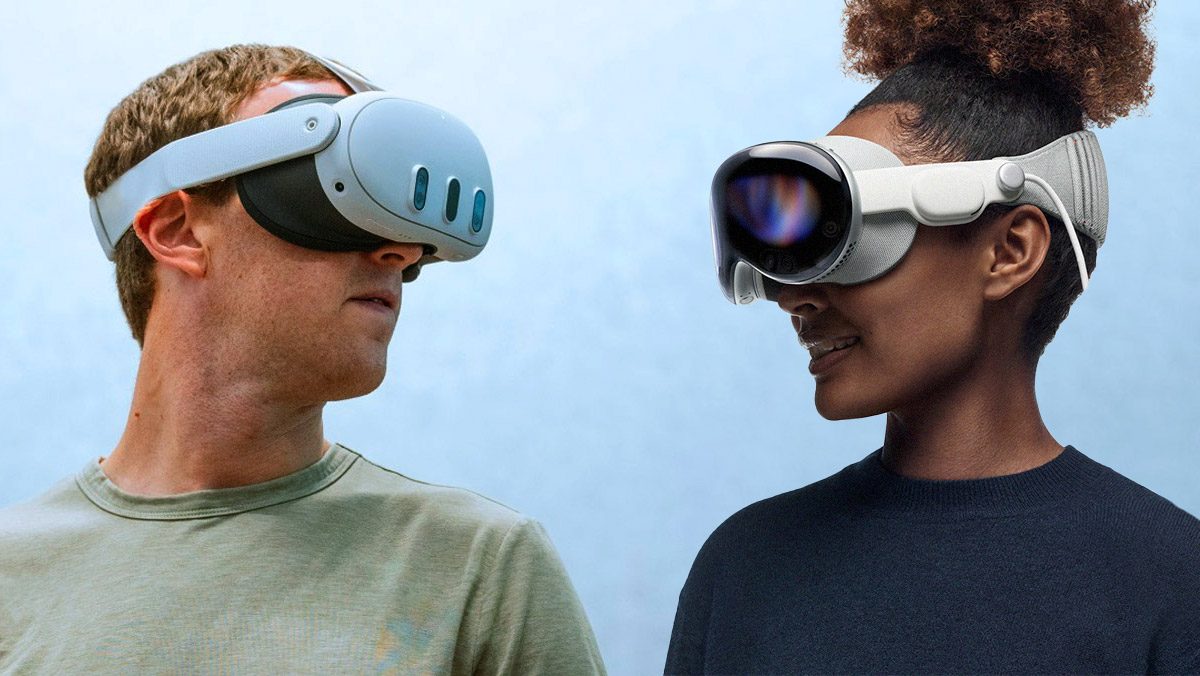
Now this one might be a bit of an early call, but let’s face it, the Vision Pro made everyone pay attention to VR and AR headsets again, even if Apple doesn’t want to agree that it is one. The Meta Quest 3 has since gone to capitalize on that hype to launch what’s essentially a Vision Pro for the masses, while it’s Quest 2 continues to sell because it’s the 3 without the AR. Add in the PSVR 2 for the PS5 this year and you have more and more people being willing to put on headsets. Will this trend continue? Probably, as the Vision Pro is set to launch early 2024. But now people who would never have bothered with VR and AR are thinking about it. So that’s definitely a win.
Losers
X/Twitter

Look; it doesn’t matter how much of a Twitter or Elon fan you are, this year has basically been a miss for both. Specifically , all of Elon’s decisions since he bought Twitter have made it a worse platform. Personally, I don’t mind the rename to X, but I do mind getting rid of circles, destroying the whole meaning of a verification checkmark then making people pay for one (which in turn led to multiple scammers and impersonators plus the worst people on the planet having checkmarks), trying to limit how many people can use the platform and of course the bugs. Goodness has this been the year of Twitter bugs. Threads may not be the Twitter replacement we were looking for but guess what, neither is X. If people weren’t so tied into the communities they’ve built on Twitter, the platform would likely be dead by now. And so far, it isn’t actually getting any better. We’ll check in on Twitter , ahem sorry, X , in a year. But so far, Elon has definitely messed it up. Oh and shoutout to reddit for similar failures here. They just aren’t as bad.
Cortana

Sigh, Cortana, you really did deserve better. Originally conceived as “Siri, but for Windows Phone”, Microsoft’s digital assistant was based on the character from the Halo franchise to give it the character and fanbase that Siri had in record time. It sort of worked at first, especially in the hey day of Windows Phone 8 where fans were willing to jump onto everything Microsoft cooked. However once Microsoft saw it couldn’t make everyone use its products the same way Apple does, it focused on its services and brought them to iOS and Android instead. The same happened for Cortana, but to say the app worked well on those platforms would be a stretch. It then found a home on Windows 10, where its usefulness varied per update and revamp. Finally with Windows 11 and Microsoft Copilot, the company decided using OpenAI’s tech to build new digital assistants was better. Could this tech have been used to revamp Cortana? Probably. But Microsoft has a way of leaving failures behind and acting like they never existed. I guess all those Halo fans can forget letting their PCs make them think they’re Master Chief. RIP Cortana. You did the best you could with what you were given.
Nothing Chats (and basically anyone who tried to make iMessage for Android)

It’s a little sad seeing Nothing, the company that basically replaced OnePlus as the budget champ take a loss. But unfortunately Icarus or specifically, Carl Pei, flew a little too close to the sun when trying to create Nothing Chats. This was meant to be a new app for the Nothing Phone 2, created and based on the existing app Sunbird that allowed Android users to use iMessage in a way that was indistinguishable from an Apple device. This was a huge deal especially in the US, where iMessage is arguably 50% of the value proposition for an iPhone. Unfortunately Nothing Chats and Sunbird turned out to be privacy nightmares, with terrible security , an outright lack of actual encryption , and a bunch of other reasons that made the app dead on arrival. Simply put, what tried to be a sneaky and clever way to bring iMessage to Android unfortunately fell flat on it’s face and became a PR nightmare for Nothing while causing SunBird to shut down.
The second challenger of this, Beepr , did fair better for a while, because they weren’t using the privacy nightmare approach of having people sign into the app using their Apple ID and that information being stored on an iMac/Mac Mini in a server farm somewhere. Instead through the help of a literal teenager, they reverse engineered how iMessage works and were able to give people legitimate iMessage access that didn’t really have any security concerns. Unfortunately Apple still wasn’t a fan of that and over the past 3 weeks it’s been a case of Beepr being systematically dismantled by Apple feature by feature until now where it literally requires you buy an iPhone or have access to an Apple device to use the service. Which is basically being dead in the water. It’s a shame Apple did this but to be honest we all saw it going no other way. The scary part however is this brings more regulatory attention on Apple. And now since that may be on the horizon, who knows what happens next. Beepr and Nothing may have lost , but chances are theirs was a worthy loss.
Mobile Data Users

Look, ever since Econet and friends had a price increase that scaled up to x2.5 in data prices this year, everyone using mobile data has taken a loss. We’ve had to switch to using USD bundles exclusively, , constantly burning USD to get better RTGS bundles, or outright changing providers when we can. All of it basically sucks, and since POTRAZ and our Ministry of ICT actually vetoed these price increases, we all have no option but to wait till the rate skyrockets again, in which, that’s much worse. So hate to end this 2023 list on a somber note, but hopefully that changes next year.
Related Stories:
Tech Company Report Card : Samsung
This has actually been one of the hardest ones to...
Read MoreTech Report Card: AI
Let's try rate the thing that helped you cheat both...
Read MoreTech Report Card : iTel, Tecno, Infinix,Oraimo (AKA Transsion Holdings)
Time to rate the company that owns Zim's smartphone market..
Read MoreBiggest tech winners (& losers) of 2023
Time to see who got 2023 in the bag and...
Read More
